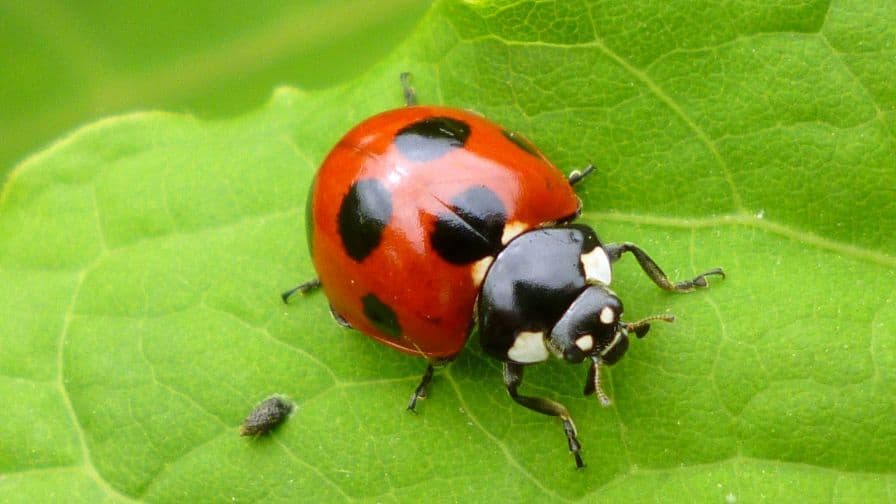
There’s been a lot of debate lately about whether or not linseed oil attracts bugs. Some people swear by it, while others say that it just makes bugs worse. So what’s the truth? Does linseed oil attract bugs? In this blog post, we’ll take a closer look at the evidence and find out once and for all!
What Is Linseed Oil And What Are Its Benefits
Linseed oil is derived from the dried, ripe seeds of the flax plant. For centuries, linseed oil has been used for a variety of purposes, including as a wood finish and as a leather conditioner.
Linseed oil is prized for its ability to give wood a smooth finish and enhance its appearance. It can also be used to hide scratches and dents and is non-toxic and food safe. In addition, linseed oil is water-resistant, eco-friendly, and elastic.
One of the most popular uses for linseed oil is as a wood or leather conditioner. When applied to these surfaces, it can help to protect them from scratches, stains, and moisture.
However, one potential downside of linseed oil is that it can attract bugs. This is because the oil contains a compound to which bugs are attracted to. While the risk of attracting bugs is relatively low, it is something to be aware of if you are considering using linseed oil in your home.
Does Linseed Oil Attract Bugs?
Yes, Linseed oil can attract bugs. The process of polymerization, or hardening, that happens when the oil is exposed to air causes a chemical reaction that produces heat. This can attract bugs looking for a warm place to rest.
The Evidence For And Against Linseed Oil Attracting Bugs
Subscribe to Oil Freedom
Linseed oil is derived from the flax plant and has been used for centuries in a variety of ways, including as a food additive, a lubricant, and an ingredient in paint and varnish. In recent years, linseed oil has become increasingly popular as a “natural” alternative to pesticides for controlling fungi and some decay organisms found in wood.
There is some evidence that linseed oil does indeed attract certain types of bugs. However, it is not clear whether this attraction is due to the oil itself or to the fact that it is often used as a food source by these pests. In addition, there is evidence that linseed oil can repel certain types of insects, making it difficult to say definitively whether or not it is an effective pest control method.
How To Use Linseed Oil To Repel Bugs
Linseed oil has been used for centuries as a natural way to repel bugs. In fact, it is still used today in many commercial and home bug sprays. The oil comes from the seeds of the flax plant and is high in omega-3 fatty acids, which are known to be beneficial to human health.
There is some evidence that linseed oil can help to repel bugs, but it is not clear how effective it is. One study found that when applied to the skin, linseed oil was able to repel mosquitoes for up to eight hours. Another study found that when used as a bug spray, linseed oil was able to kill ticks and fleas.
However, there is also evidence that linseed oil can attract bugs. One study found that when used as a bug spray, linseed oil actually attracted more mosquitoes and ticks than it repelled. Another study found that when applied to the skin, linseed oil actually increased the number of bites from mosquitoes.
So, while there is some evidence that linseed oil can help to repel bugs, it is not clear how effective it actually is. If you decide to use linseed oil as a bug repellent, be sure to test it in a small area first to see how your body reacts.
Will Linseed Oil Keep Termites Away?
Yes, linseed oil will help to keep termites away from your home. The termites are attracted to the linseed oil and will eat it, which will then kill them. You can apply the linseed oil to any areas where you think the termites might be coming into your homes, such as cracks in the foundation or around doors and windows.
Does Linseed Oil Attract Mould?
Subscribe to Mr Cheese
Linseed oil is a popular ingredient in many household products, ranging from paints and varnishes to soaps and cosmetics. It’s also used as a food additive. But what many people don’t realize is that linseed oil can actually attract mold and other fungi.
There are many varieties of mold fungi, and they thrive on mold because it is an organic material. Linseed oil is also a natural product, so it can provide the perfect environment for mold to grow. If you’re using products that contain linseed oil, be sure to keep them in a cool, dry place to prevent mold from growing. And if you see any signs of mold, throw the product away immediately.
Alternatives To Using Linseed Oil To Repel Bugs
While some people may enjoy the smell of linseed oil, others find it incredibly offensive. If you’re looking for an alternative to using linseed oil to repel bugs, there are a few different essential oils that can do the trick. Here are some of them:
- Geranium Oil
- Lemon eucalyptus oil
- Peppermint Oil
- Citronella Oil
If you’re looking for something with a more pleasant scent, however, any of the essential oils listed above should do the trick.



